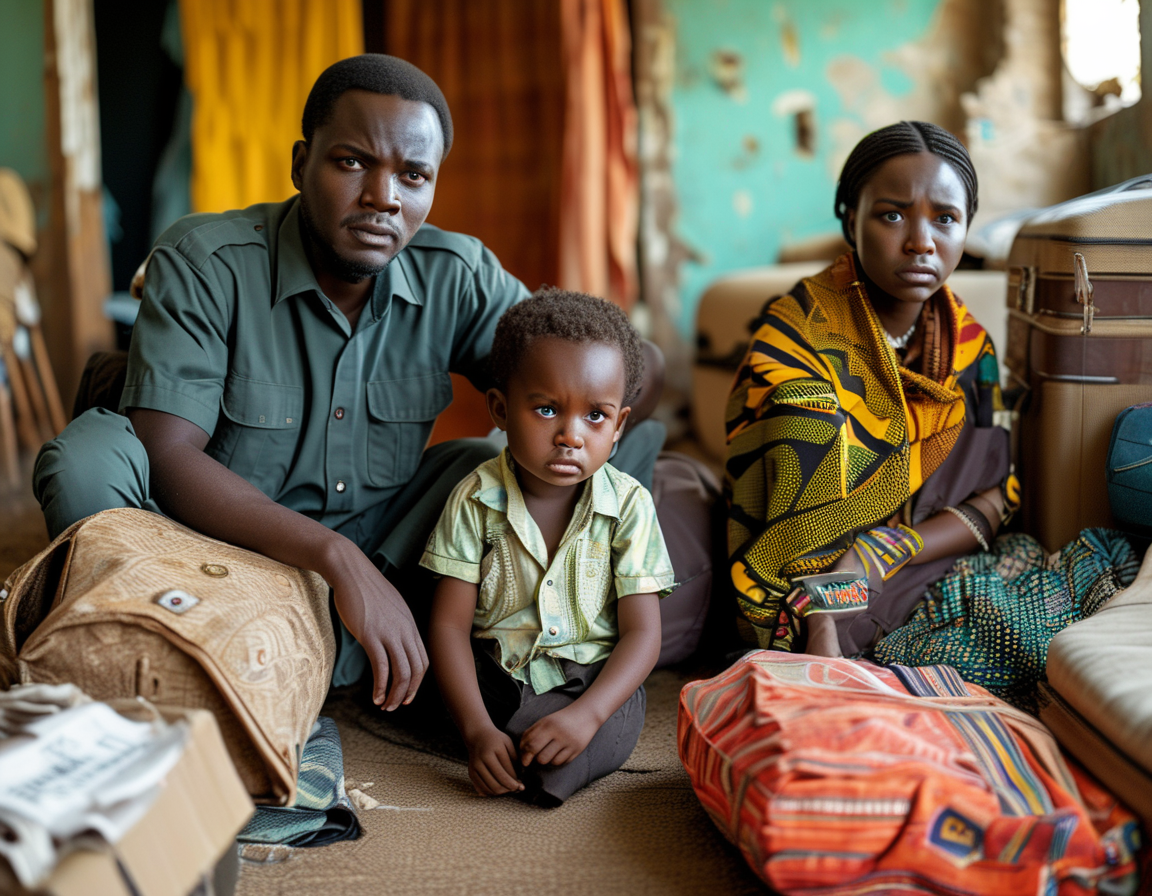
**The Visa Revocation Decision**
In a bold move, Secretary of State Marco Rubio announced the cancellation of visas for all South Sudanese passport holders. This action comes in response to South Sudan’s refusal to accept its citizens who are facing deportation from the United States. On Saturday, Rubio condemned the transitional government of South Sudan for its failure to act swiftly in accepting repatriated citizens. The stakes are high, raising questions about the future of immigration policies and how they affect real lives in the US and abroad.
Rubio’s statement underscored a pivotal moment in the ongoing tensions surrounding immigration. As the world watches, he emphasized the need for South Sudan to stop “taking advantage” of the U.S. The consequences of this decision extend beyond bureaucratic red tape; they impact communities, families, and individuals who may be caught in a confusing web of immigration rules. How do we reconcile the need for national security with the human cost of these policies?
**The Role of Temporary Protected Status (TPS)**
A key aspect to consider is the Temporary Protected Status (TPS) that many South Sudanese in the U.S. have enjoyed. TPS has provided refuge for individuals fleeing the devastating conflicts that have plagued South Sudan since its independence in 2011. Many of these individuals have built lives here, contributing to society in meaningful ways. Rubio’s recent actions threaten to dismantle their security, leaving them vulnerable and uncertain.
The TPS for South Sudan was set to expire on May 3. People who have called the U.S. home for years now face the potential of deportation back into a tumultuous environment. Streets brimming with prior violence and civil unrest might become their new reality once more. This looming uncertainty leaves many in South Sudanese communities grappling with how to secure their future.
**The Bigger Picture of South Sudan’s Struggles**
South Sudan’s complex evolution as a nation can’t be ignored. Achieving independence in 2011 was a beacon of hope, but only two years later, civil war erupted between political leaders Salva Kiir and Riek Machar. The resulting chaos claimed over 400,000 lives, a staggering statistic that continues to haunt the country. Amid the backdrop of political turmoil, what does stability really look like?
A fragile peace deal reached in 2018 raised expectations, but many critical elements remain unrealized. The absence of a new constitution or sustained political alliances underscores a troubling situation. Sporadic violence continues, demonstrating that while peace efforts are underway, the reality for South Sudanese citizens remains precarious. What must change to see a true transition towards democracy and peace?
**Pressure from the Administration**
The Trump administration has taken a hardline stance on immigration, prioritizing the removal of unlawful migrants. The decision to revoke visas ties directly into this mission. Yet the outcomes raise critical questions about the balance of power between nations. Each country has a responsibility to accept its citizens, but deportation practices invariably stir ethical dilemmas about human rights and dignity.
From Colombia to South Sudan, the Trump administration faces backlash over its repatriation strategies. The governments of deported individuals often must weigh the benefits of international relations against national sovereignty. There’s a clear paradox here; does putting pressure on governments help or hurt global cooperation? Or does it create further divisions?
**Looking Ahead**
As the world watches these developments, it’s essential to remember the human aspect of this narrative. Individuals and families are affected deeply by these decisions. The uncertainty and fear felt by the South Sudanese in America begs for empathy and understanding. It raises a question we all ought to ponder—what kind of nation do we want to be in the face of crisis?
In assessing this recent decision, we must consider its broader implications. Immigration policies cannot exist in a vacuum; they ripple through lives, communities, and entire nations. Therefore, as we reflect on these actions, let’s advocate for a more humane approach, one that considers the complexities of human experiences amidst national interests.
Leave a Comment